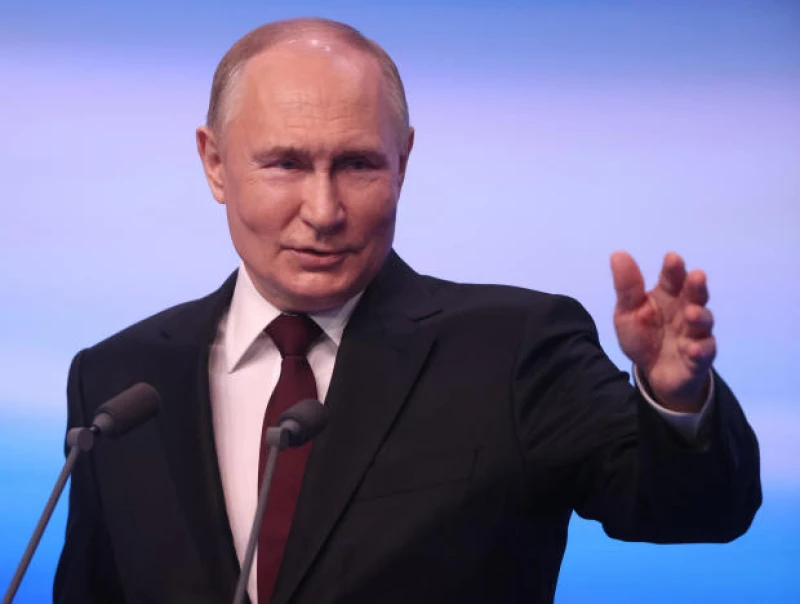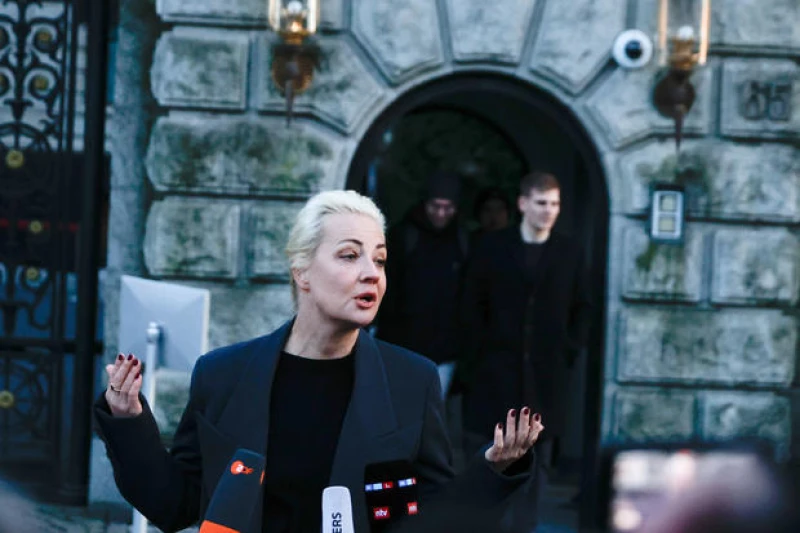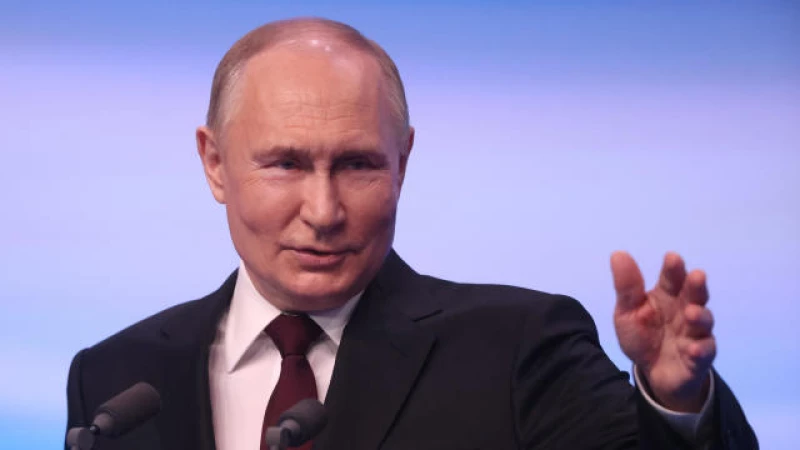President Vladimir Putin celebrated a landslide victory in the recent election, solidifying his grip on power in Russia. Officials confirmed on Monday that Putin had secured his fifth term with an unprecedented number of votes, showcasing his dominance over the country's political landscape.
With minimal opposition and a crackdown on dissenting voices, Putin secured another six years in office, marking his nearly 25-year reign.
The Central Election Commission of Russia announced that Putin received 87.29% of the vote after counting almost all precincts. Commission head Ella Pamfilova revealed that nearly 76 million voters supported Putin, marking his highest vote count to date.
Putin, aged 71, interpreted the overwhelming support as a sign of "trust" and "hope" in his leadership, although critics viewed the results as a predetermined outcome of the election.
"We have numerous challenges ahead of us. However, I want to emphasize that when we stand united, no one can intimidate us or suppress our will and self-awareness. They have failed in the past, and they will fail in the future," Putin declared during a press conference at his campaign headquarters in Moscow following the close of the polls.
Putin is on track to surpass any Russian leader in power since Catherine the Great in the 18th century, according to Agence France-Presse.
All public criticism of Putin or his war in Ukraine has been silenced. Independent media outlets have been severely restricted. Yevgeny Prigozhin, a former Putin ally, was killed in a plane explosion in August 2023, following his involvement in an armed uprising against Moscow's military leadership. Putin's most prominent political opponent, Alexy Navalny, passed away in an Arctic prison last month, and other key critics have either died, been imprisoned, or forced into exile.
Aside from the lack of viable options for voters, there was minimal independent oversight of the election process.
Chinese President Xi Jinping, North Korean leader Kim Jong Un, as well as the presidents of Honduras, Nicaragua, and Venezuela, were among the first to congratulate Putin on his win. Meanwhile, Western nations dismissed the election as fraudulent.
British Foreign Secretary David Cameron expressed on X, previously known as Twitter: "This does not align with the principles of free and fair elections."
Voting took place in various locations across Russia and in Russian-occupied parts of Ukraine, a move that was criticized by more than 50 countries in a joint statement released by the U.S. Mission to the United Nations.
A spokesperson from the U.S. State Department, Matthew Miller, recently called the voting in occupied Ukraine "sham elections."
"The United States does not and will never acknowledge the legitimacy or results of these sham elections conducted in sovereign Ukraine as part of Russia's presidential elections," stated Miller.
When questioned about whether the U.S. would accept Putin as a duly elected president, Miller responded, "We will observe the election, and I'm confident we will have a lot to say once it concludes."
Putin criticism managed to evade suppression
Despite limited room for dissent, Russians gathered outside polling stations at noon on Sunday, the final day of the election, seemingly following an opposition call to show their dissatisfaction with the president.
Lines outside several polling stations within Russia and at its embassies worldwide seemed to grow at that time.

Navalnaya's Bold Message to Putin
In a defiant stand against Russian President Vladimir Putin, Navalnaya refused to deliver a message to him, stating, "Please stop asking for messages from me or from somebody for Mr. Putin. There could be no negotiations and nothing with Mr. Putin, because he's a killer, he's a gangster."
Putin, however, dismissed the impact of the protest, saying, "There were calls to come vote at noon. And this was supposed to be a manifestation of opposition. Well, if there were calls to come vote, then ... I praise this," during a news conference after the polls closed.
In an unprecedented move, Putin mentioned Alexei Navalny by name for the first time during the news conference.
While some Russians in Moscow and St. Petersburg confirmed their participation in the protest, it was challenging to verify if everyone in line was part of the demonstration.
One voter in Moscow, known only as Vadim, expressed a desire for change but remained skeptical, saying, "unfortunately, it's unlikely," citing security concerns for not providing his full name.
Supporters of Navalny flocked to his grave in Moscow, some carrying ballots with his name inscribed on them.
Notably, Meduza, Russia's largest independent news source, shared images of ballots received from readers, with one labeled "killer" and another stating, "The Hague awaits you," in reference to an International Criminal Court arrest warrant for Putin on war crimes charges.
During the recent election, there were multiple arrests in Moscow and St. Petersburg for attempted arson and explosives at polling stations, as well as detentions for throwing green antiseptic or ink into ballot boxes. This resulted in limited opportunities for people to express themselves. Despite this, long queues were seen outside diplomatic missions in London, Berlin, Paris, and other cities with significant Russian communities, many of whom had left their homeland following Putin's invasion of Ukraine.

"If we have some option to protest I think it's important to utilize any opportunity," expressed 23-year-old Tatiana, who participated in the voting process in Tallinn, Estonia, with the intention of joining the protest.
Supporters of Putin also voiced their opinions
Some individuals shared their satisfaction in voting for Putin, which is common in a country where state TV heavily promotes the Russian leader and expressing dissenting views can be dangerous.
Dmitry Sergienko, a voter in Moscow, expressed his contentment by stating, "I am happy with everything and want everything to continue as it is now."







